Drill bits are generally considered standard in terms of their basic design and functionality, but there are variations in size, material, and specific features that can affect their compatibility and performance. Here's a detailed look at the standard aspects of drill bits and the variations you might encounter:
Standard Features of Drill Bits
1.Shank Size:
Common Sizes: Drill bits typically come in standard shank sizes such as 1/4-inch, 3/8-inch, and 1/2-inch. These sizes are designed to fit most standard drill chucks.
Hex Shanks: Some drill bits have hexagonal shanks, which are designed for quick-change chucks or impact drivers. These are not compatible with standard round shank chucks.
2.Flute Design:
Twist Flutes: Most drill bits have a helical flute design that helps remove chips and debris while drilling. This design is standard across most general-purpose drill bits.
Specialized Flutes: Some specialized bits, such as masonry bits, may have deeper or more aggressive flutes to handle the specific challenges of drilling through hard materials.
3.Point Angle:
Standard Angle: Most drill bits have a point angle of 118 degrees, which is suitable for general-purpose drilling in wood, metal, and plastic.
Special Angles: Some bits, especially those designed for harder materials, may have a 135-degree split point for better self-centering and reduced bit walking.
Variations in Drill Bits
1.Material:
High-Speed Steel (HSS): The most common material for general-purpose drill bits. HSS bits are durable and can handle a wide range of materials.
Cobalt: Cobalt bits are harder and more heat-resistant than HSS bits, making them suitable for drilling into harder metals like stainless steel.
Carbide: Carbide-tipped bits are extremely hard and durable, making them ideal for drilling into very hard materials like concrete, brick, and stone.
2.Coatings:
Titanium Nitride (TiN): A common coating that reduces friction and increases heat resistance, extending the life of the bit.
Black Oxide: Provides additional durability and corrosion resistance.
3.Specialized Bits:
Masonry Bits: Designed for drilling into concrete, brick, and stone. These bits typically have carbide tips.
Tile Bits: Designed for drilling into ceramic tiles and glass. These bits often have diamond tips.
Wood Bits: Brad point bits and spade bits are specifically designed for woodworking, providing clean and precise holes.
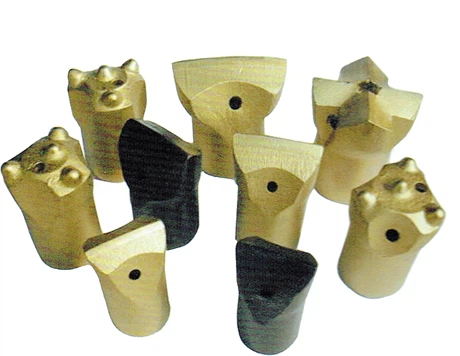
Standardization and Compatibility
Universal Design: Most drill bits are designed to be universal and can be used with drills from different manufacturers, provided they fit the chuck size and type.
Chuck Compatibility: Ensure the shank size of the drill bit matches the chuck size of your drill. Keyless chucks are the most common and can accommodate a wide range of standard shank sizes.
Material Consideration: Choose drill bits made from materials suitable for the material you are drilling (e.g., HSS for wood and metal, carbide for masonry).
are drill bits measured in diameter or radius
Drill bits are measured by their diameter, not their radius. The diameter is the distance across the bit from one side to the other, passing through the center. This measurement is crucial for ensuring that the drill bit creates a hole of the correct size for your specific application.
Why Diameter is Used
Standardization: Drill bit sizes are standardized based on diameter, making it easier to select the right bit for a given task.
Compatibility: Knowing the diameter helps in matching the drill bit to the correct size hole needed for screws, bolts, or other components.
Precision: Diameter measurements provide a clear and consistent way to describe the size of the bit, ensuring accurate drilling.
Common Drill Bit Size Systems
1.Fractional Inches:
Sizes are given in fractions of an inch (e.g., 1/16 inch, 1/8 inch, 3/16 inch).
Example: A 1/4-inch drill bit has a diameter of 0.25 inches.
2.Decimal Inches:
Sizes are given in decimal form (e.g., 0.0135 inch, 0.019 inch).
Example: A 0.125-inch drill bit has a diameter of 0.125 inches.
3.Metric Sizes:
Sizes are given in millimeters (e.g., 1.0 mm, 1.5 mm, 2.0 mm).
Example: A 3.0 mm drill bit has a diameter of 3.0 millimeters.
How to Measure Drill Bit Diameter
Digital Calipers: Use digital calipers to measure the diameter of the drill bit accurately.
Micrometer: For even more precision, use a micrometer to measure the diameter.
Ruler or Tape Measure: For less precise measurements, a ruler or tape measure can be used, but ensure the bit is measured accurately.
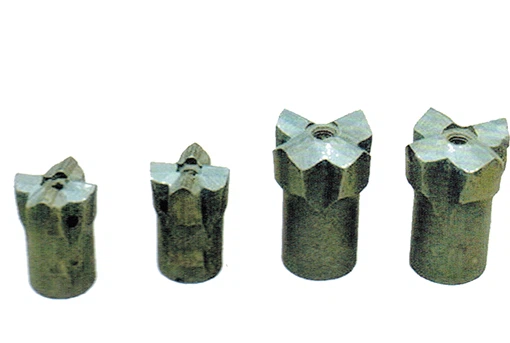
Tips for Using Drill Bit Sizes
Match the Bit to the Hole Size: Always select a drill bit with the correct diameter for the hole you need to create.
Check the Material: Different materials may require different types of drill bits, but the diameter remains the key measurement.
Use a Drill Bit Gauge: A drill bit gauge can help you quickly identify the size of a drill bit if you are unsure.
are drill bits universal between brands
Drill bits are generally universal and can be used interchangeably between different brands, provided they fit the chuck size and type of your drill.Here are some key points to consider:
Shank Size and Shape
Standard Shank Sizes: Most drill bits come in standard shank sizes such as 1/4-inch, 3/8-inch, and 1/2-inch. Ensure that the shank size of the drill bit matches the chuck size of your drill.
Hex Shanks: Some drill bits have hexagonal shanks, which are designed for quick-change chucks or impact drivers. These are not compatible with standard round shank chucks.
Chuck Type
Keyless Chucks: Most modern drills come with keyless chucks, which allow for easy bit changes without additional tools. These chucks can accommodate a wide range of standard shank sizes.
Keyed Chucks: Some older drills have keyed chucks that require a chuck key to tighten or loosen the bit. These chucks can be less convenient but offer a more secure grip.
Material Compatibility
Drill bits are designed for specific materials (e.g., wood, metal, masonry). Ensure that the bit material (such as high-speed steel (HSS), cobalt, or carbide) is suitable for the material you are drilling.
Specialized Bits
Some specialized bits (e.g., masonry bits, tile bits) may require specific types of drills (e.g., hammer drills for masonry bits).However, the basic design of most drill bits is standardized to ensure compatibility with a wide range of drills.
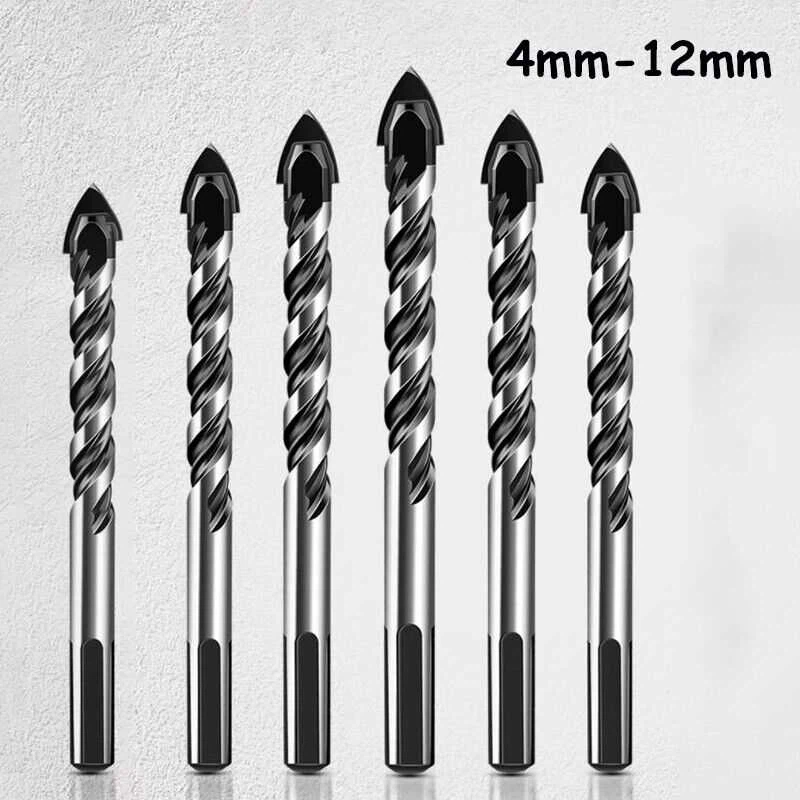
Brand Differences
While most drill bits are universal, some brands may offer specialized bits with unique features or coatings. These bits are still generally interchangeable but may offer better performance with the brand's specific drills.
are hammer drill bits different
Hammer drill bits are different from regular drill bits and are specifically designed for use with hammer drills. Hammer drills, also known as rotary hammer drills, combine a rotating action with a hammering action, making them highly effective for drilling into hard materials like concrete, brick, and stone. Here are the key differences and features of hammer drill bits:
Key Features of Hammer Drill Bits
1.Material:
Carbide-Tipped: Hammer drill bits are typically carbide-tipped to withstand the hardness and abrasiveness of masonry materials. Carbide is much harder and more durable than high-speed steel (HSS), which is commonly used in regular drill bits.
Steel Shank: The shank (the part that fits into the drill chuck) is usually made from high-quality steel to provide strength and durability.
2.Design:
Flute Design: Hammer drill bits often have wider and deeper flutes to efficiently remove dust and debris generated during drilling. This helps prevent the bit from clogging and ensures smooth drilling.
Tip Design: The tips are designed to be more durable and resistant to wear. Some bits have a chisel point, which is effective for chipping away at masonry.
3.Shank Types:
SDS Plus: This is the most common shank type for hammer drill bits. SDS Plus bits have a slotted shank that fits into the chuck of an SDS Plus hammer drill. This design allows for better transmission of the hammering action and prevents the bit from slipping.
SDS Max: For heavier-duty applications, SDS Max bits have a larger shank and are designed for use with more powerful hammer drills.
SDS Top: A middle-ground option between SDS Plus and SDS Max, suitable for medium-duty applications.
Applications
Concrete: Ideal for drilling holes in concrete for anchors, rebar, or other fixtures.
Brick and Stone: Effective for creating holes in brick and stone for mounting hardware or other applications.
Masonry Work: Suitable for various masonry tasks, including drilling holes for electrical conduits, plumbing pipes, and other installations.
Differences from Regular Drill Bits
Durability: Hammer drill bits are designed to withstand the high-impact forces generated by hammer drills, making them more durable than regular drill bits.
Performance: The combination of rotation and hammering action allows hammer drill bits to penetrate hard materials more efficiently than regular drill bits.
Heat Resistance: Hammer drill bits are designed to handle the heat generated during high-impact drilling, reducing the risk of overheating and bit failure.
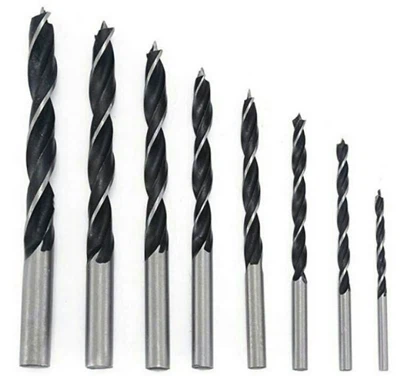
Tips for Using Hammer Drill Bits
Use the Right Drill: Ensure you are using a hammer drill or rotary hammer drill designed for masonry work.
Cooling: Periodically cool the bit with water to prevent overheating and extend its life.
Clear Debris: Regularly clear dust and debris from the hole to maintain drilling efficiency.
Safety: Always wear safety goggles and gloves to protect yourself from flying debris and sharp edges.
are harbor freight drill bits any good
Harbor Freight drill bits are generally considered to be of good quality and offer great value for money. Here's a detailed look at the quality and performance of Harbor Freight drill bits based on customer reviews and expert opinions:
Overall Quality and Performance
Affordable and Durable: Harbor Freight offers a wide range of drill bits at affordable prices. Many customers find that these bits are durable and perform well for general use.
Variety of Sets: They offer various sets suitable for different materials, including wood, metal, glass, plastic, and more.
Customer Satisfaction: Based on customer reviews, many users are satisfied with the performance and durability of Harbor Freight drill bits.
Specific Drill Bit Sets
1.Warrior Titanium Drill Bit Set:
Material: Titanium-coated steel.
Features: 29 pieces, sizes from 1/16 inch to 1/2 inch, suitable for wood, plastic, brass, and aluminum.
Customer Reviews: Rated 4.3 stars based on over 10,000 reviews. Customers appreciate the quality and performance.
2.Bauer Impact Drill and Driver Bit Set:
Material: Steel.
Features: 35 pieces, includes magnetic holders and a storage case.
Customer Reviews: Rated 4.7 stars based on nearly 500 reviews. Customers highlight the good assortment of bits and the included storage case.
3.Hercules Titanium Drill Bit Set:
Material: Titanium-coated steel.
Features: 21 pieces, 135-degree StarterPoint tips, includes a storage case.
Customer Reviews: Rated 4.5 stars based on nearly 700 reviews. Customers note the good value and performance.
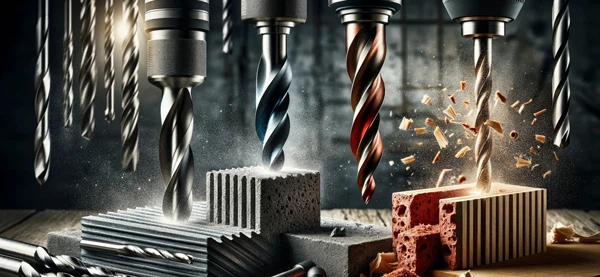
4.Warrior Titanium Step Drill Bit Set:
Material: Titanium-coated steel.
Features: 3 stepped bits, can drill holes from 1/8 inch to 3/4 inch in steel, brass, copper, aluminum, and plastic.
Customer Reviews: Rated 4.6 stars based on over 4,000 reviews. Customers appreciate the compact design and durability.
5.Warrior Carbide Tip Glass and Tile Cutting Drill Bit Set:
Material: C-3 tungsten carbide tips.
Features: 6 pieces, suitable for glass, plastic, and tile.
Customer Reviews: Rated 4.2 stars based on over 1,000 reviews. Customers highlight the effectiveness on hard materials.
are masonry drill bits different
Masonry drill bits are different from regular drill bits and are specifically designed for drilling into hard materials like concrete, brick, and stone. Here are the key differences and features of masonry drill bits:
Key Features of Masonry Drill Bits
1.Material:
Carbide-Tipped: Masonry drill bits are typically carbide-tipped to withstand the hardness and abrasiveness of masonry materials. Carbide is much harder and more durable than high-speed steel (HSS), which is commonly used in regular drill bits.
Steel Shank: The shank (the part that fits into the drill chuck) is usually made from high-quality steel to provide strength and durability.
2.Design:
Flute Design: Masonry drill bits often have wider and deeper flutes to efficiently remove dust and debris generated during drilling. This helps prevent the bit from clogging and ensures smooth drilling.
Tip Design: The tips are designed to be more durable and resistant to wear. Some bits have a chisel point, which is effective for chipping away at masonry.
3.Shank Types:
SDS Plus: This is the most common shank type for masonry drill bits. SDS Plus bits have a slotted shank that fits into the chuck of an SDS Plus hammer drill. This design allows for better transmission of the hammering action and prevents the bit from slipping.
SDS Max: For heavier-duty applications, SDS Max bits have a larger shank and are designed for use with more powerful hammer drills.
SDS Top: A middle-ground option between SDS Plus and SDS Max, suitable for medium-duty applications.
Applications
Concrete: Ideal for drilling holes in concrete for anchors, rebar, or other fixtures.
Brick and Stone: Effective for creating holes in brick and stone for mounting hardware or other applications.
Masonry Work: Suitable for various masonry tasks, including drilling holes for electrical conduits, plumbing pipes, and other installations.

Differences from Regular Drill Bits
Durability: Masonry drill bits are designed to withstand the high-impact forces generated by hammer drills, making them more durable than regular drill bits.
Performance: The combination of rotation and hammering action allows masonry drill bits to penetrate hard materials more efficiently than regular drill bits.
Heat Resistance: Masonry drill bits are designed to handle the heat generated during high-impact drilling, reducing the risk of overheating and bit failure.
are old drill bits worth anything
Old drill bits can indeed have value, depending on their condition, material, and type. Here's a detailed look at what old drill bits are worth and how you can determine their value:
Factors Affecting the Value of Old Drill Bits
1.Material:
High-Speed Steel (HSS): These are the most common drill bits and are generally worth less than specialized materials. However, they can still be valuable for recycling.
Cobalt: Cobalt drill bits are more durable and can be worth more due to their higher quality and specialized use.
Carbide: Carbide drill bits are highly durable and can be recycled or resold for a good price, especially if they are in good condition.
2.Condition:
Good Condition: Drill bits that are in good condition, with minimal wear and no damage, will generally be worth more.
Damaged or Dull: Heavily damaged or dull bits may still have value for their material content but will be worth less.
3.Brand:
Reputable Brands: Drill bits from well-known brands like Bosch, DeWalt, or Milwaukee tend to hold their value better than generic brands.
4.Type and Size:
Specialized Bits: Bits designed for specific applications, such as diamond-tipped bits for glass or carbide bits for masonry, can be more valuable.
Size: Larger bits are generally more valuable than smaller ones.
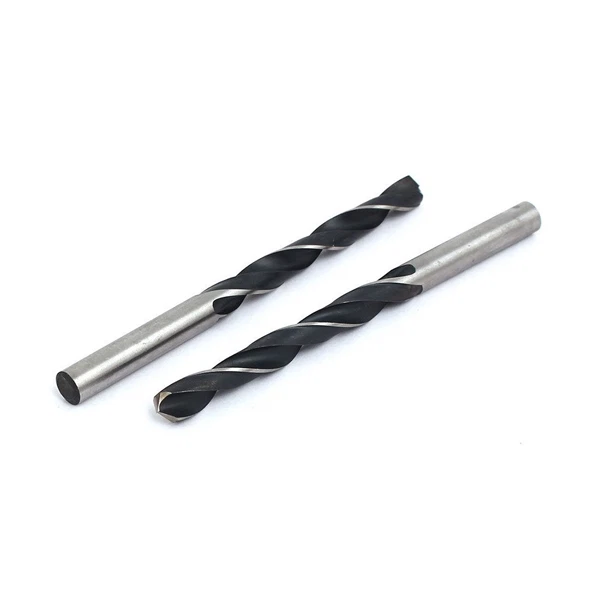
Determining the Value
To determine the value of your old drill bits, consider the following steps:
Assess the Condition: Check for wear, damage, and sharpness.
Research Market Prices: Look up similar bits on online marketplaces like eBay to see what they are selling for.
Consider Usage: Bits used for heavy-duty tasks may be less valuable than those used for lighter tasks.
Recycling and Reselling Options
Recycling: Many recycling centers accept metal tools like drill bits for recycling. This can be a good option if the bits are heavily worn or damaged.
Reselling: You can sell your old drill bits on platforms like eBay. Be sure to accurately describe their condition and provide clear photos.
Specialized Programs: Some companies specialize in recycling or repurposing old drill bits. For example, Sturgeon Drilling Tools buys used TCI tri-cone bits and re-purposes them.
are snap on drill bits lifetime warranty
Snap-On drill bits do not come with a lifetime warranty. According to Snap-On's warranty policy, consumable products such as drill bits are only warranted against defects in workmanship or materials that prevent their use at the time of sale. This means that while Snap-On does offer a lifetime warranty on many of its hand tools, this warranty does not extend to consumable items like drill bits.
are titanium drill bits good
Titanium drill bits are generally considered to be good for a variety of applications, but they have specific advantages and limitations. Here's a detailed look at their performance, benefits, and ideal use cases:
Advantages of Titanium Drill Bits
1.Durability and Longevity:
Titanium-coated drill bits are more durable than standard high-speed steel (HSS) bits. The titanium coating reduces friction and heat, which helps the bits stay sharper for longer.
They can last significantly longer than HSS bits, especially when used for drilling through tough materials like metals.
2.Reduced Friction and Heat:
The titanium coating reduces friction, which in turn reduces heat buildup. This leads to smoother, faster drilling and cleaner holes.
3.Versatility:
Titanium bits are versatile and can be used for drilling through a variety of materials, including wood, plastic, aluminum, and mild steel.
4.Cleaner Cuts:
They produce cleaner, more precise holes with less chipping or splintering, especially in wood and plastic.
Ideal Use Cases
Wood: Excellent for creating clean, splinter-free holes.
Soft Metals: Very effective for drilling through aluminum, brass, and copper.
Plastic: Reduces melting from heat, making them suitable for drilling through plastics.
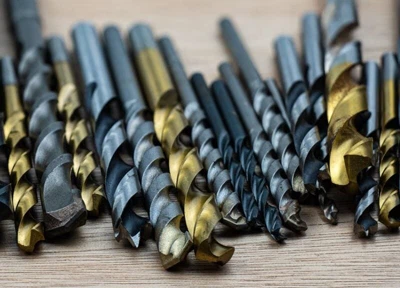
Limitations
1.Not Ideal for Hard Metals:
Titanium bits are not the best choice for drilling through hardened steel or cast iron. For these materials, cobalt or carbide bits are more suitable.
2.Coating Wear:
The titanium coating can wear off over time, especially with repeated use on hard materials. Once the coating is gone, the bit is essentially an HSS bit.
3.Sharpening Difficulties:
Sharpening titanium-coated bits can be challenging because it removes the coating, reducing their effectiveness.
Cost
Titanium drill bits are more expensive than standard HSS bits but offer better performance and longevity. They are a good investment for those who frequently drill through various materials.













